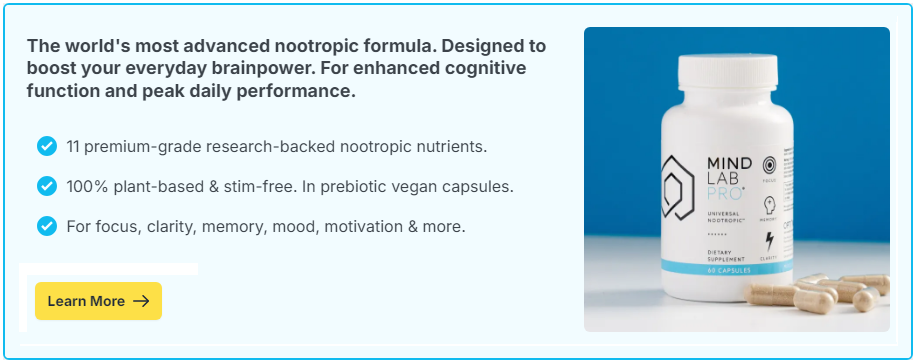
Scientific research requires intense focus, critical thinking, and long hours of deep cognitive work. Whether analyzing complex data, troubleshooting experiments, or writing detailed reports, researchers rely heavily on sustained mental performance. However, the prolonged nature of research projects can lead to fatigue, reduced efficiency, and even burnout.
Optimizing cognitive function isn’t just about pushing through exhaustion; it’s about implementing strategies that support long-term brain health and performance. With the right approach to nutrition, sleep, exercise, stress management, and work environment, researchers can maintain sharpness, productivity, and resilience throughout their projects.
Contents
- The Cognitive Demands of Extended Research Projects
- Nutrition: Feeding Your Brain for Optimal Function
- Sleep: The Foundation of Cognitive Performance
- Exercise: A Natural Brain Booster
- Managing Stress and Avoiding Burnout
- Time Management: Structuring Your Day for Maximum Efficiency
- Optimizing Your Work Environment
The Cognitive Demands of Extended Research Projects
Working in a lab environment presents unique cognitive challenges that require sustained attention and mental endurance. Some of the biggest demands on researchers include:
- High cognitive load: Processing large amounts of data and research findings requires deep mental effort.
- Extended focus periods: Long experiments or intricate procedures demand sustained attention.
- Problem-solving under pressure: Unexpected challenges, equipment malfunctions, and failed experiments require quick adaptation.
- Time constraints: Tight deadlines for publications, funding applications, or project milestones create stress.
- Sleep disruption: Long hours in the lab or late-night writing sessions can interfere with rest and recovery.
Understanding these challenges is the first step to mitigating their effects. Now, let’s explore how to sustain mental sharpness over the long haul.
Nutrition: Feeding Your Brain for Optimal Function
Your brain is an energy-intensive organ, consuming around 20% of your total caloric intake. Providing it with the right nutrients can significantly impact cognitive function, memory, and focus.
Essential Nutrients for Cognitive Health
- Omega-3 fatty acids: Found in fish, walnuts, and flaxseeds, omega-3s support neural function and memory.
- Antioxidants: Blueberries, dark chocolate, and leafy greens help combat oxidative stress that can impair brain function.
- B vitamins: B6, B12, and folate support neurotransmitter production and brain energy metabolism.
- Choline: Present in eggs and soy, choline enhances memory and learning.
- Magnesium: Nuts, seeds, and whole grains help regulate brain neurotransmitters and reduce stress.
- Caffeine (in moderation): A small dose from coffee or tea can enhance alertness without causing jitters.
Smart Eating Habits for Researchers
- Eat regular meals: Avoid skipping meals, as this can lead to energy crashes and brain fog.
- Stay hydrated: Dehydration can reduce concentration and memory performance.
- Limit sugar and processed foods: These can cause energy fluctuations that interfere with sustained focus.
Sleep: The Foundation of Cognitive Performance
Sleep is critical for memory consolidation, problem-solving, and overall cognitive function. Yet, many researchers sacrifice sleep in the name of productivity, leading to impaired focus and increased errors.
How Sleep Impacts Brain Function
- Memory consolidation: REM sleep strengthens neural connections and improves retention.
- Problem-solving: Sleep enhances creative thinking and decision-making abilities.
- Emotional regulation: Sleep deprivation increases stress and emotional reactivity, making it harder to stay motivated.
Improving Sleep Quality
- Stick to a schedule: Go to bed and wake up at the same time daily.
- Avoid screens before bed: Blue light disrupts melatonin production.
- Use naps strategically: A 10-20 minute nap can refresh your mind without disrupting nighttime sleep.
Exercise: A Natural Brain Booster
Physical activity increases blood flow to the brain, enhances neuroplasticity, and improves mood. Even small amounts of movement can make a difference.
Best Exercises for Cognitive Performance
- Aerobic exercise: Running, cycling, or swimming boosts memory and concentration.
- Strength training: Lifting weights supports executive function and problem-solving skills.
- Yoga and stretching: Reduces stress and enhances focus.
Managing Stress and Avoiding Burnout
Chronic stress can impair memory and decision-making, making it essential to implement stress management techniques.
Effective Stress Reduction Strategies
- Mindfulness meditation: Just 10 minutes a day can improve focus and reduce anxiety.
- Break work into manageable chunks: Large tasks are less overwhelming when divided into smaller steps.
- Maintain social connections: Engaging with colleagues and friends helps relieve stress.
Time Management: Structuring Your Day for Maximum Efficiency
Smart time management can help preserve cognitive resources and prevent exhaustion.
Best Practices for Research Productivity
- Use the Pomodoro Technique: Work in focused 25-minute sessions with short breaks.
- Prioritize high-focus tasks: Tackle complex work when your mind is freshest.
- Minimize distractions: Turn off notifications and set designated email-checking times.
Optimizing Your Work Environment
Your workspace can influence focus, creativity, and efficiency.
Setting Up an Effective Research Space
- Use good lighting: Natural light enhances alertness.
- Keep your workspace organized: Clutter can be mentally distracting.
- Incorporate background sound: White noise or instrumental music can enhance focus.
Extended research projects demand sustained cognitive effort, but with the right strategies, mental sharpness can be maintained. Proper nutrition, sleep, exercise, stress management, time optimization, and workspace adjustments all play crucial roles in supporting brain function. By implementing these techniques, researchers can enhance productivity, reduce burnout, and perform at their best throughout long-term projects.

